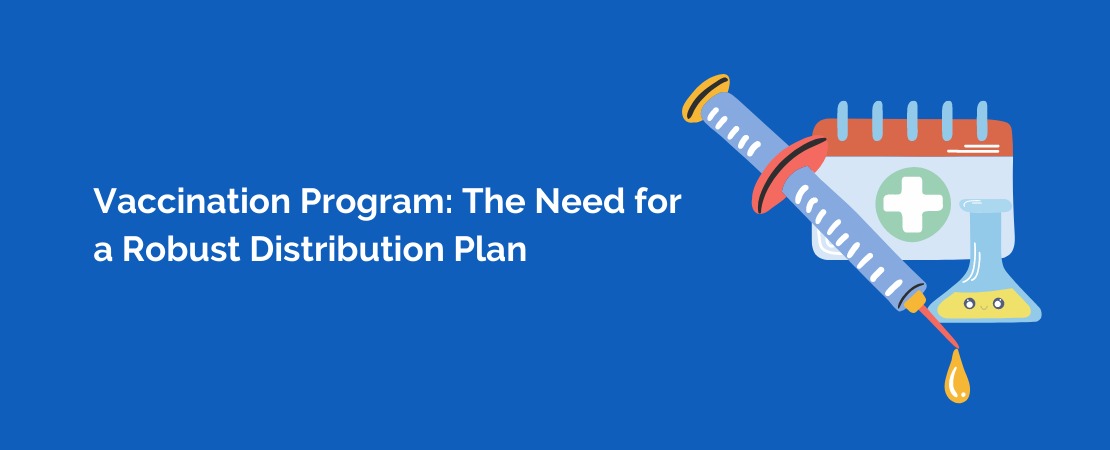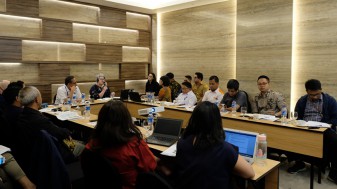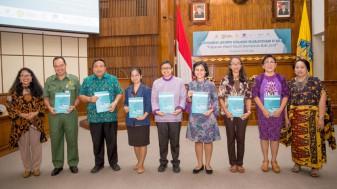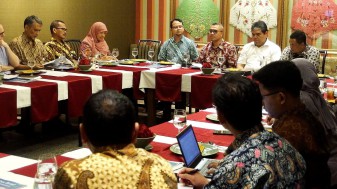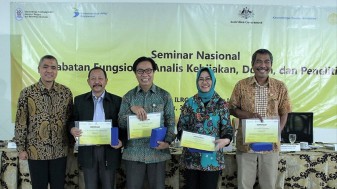The procurement of the Covid-19 vaccine is an important step in order to promote herd immunity to reduce cases of virus transmission. However, implementing a vaccination program requires careful preparation and distribution plans to ensure its success and effectiveness.
That was one of the topics in the Surge Capacity #2 series Zoom Seminar with the theme "Can the Covid-19 Vaccine Reduce the Need for In-Patient Treatment at Referral Hospitals?" which was held by the Center for Health Policy and Management (PKMK) Gadjah Mada University on Thursday (17/12). The speakers of this seminar included the Medical Officer of the World Health Organization (WHO) for Indonesia Vinod Bura, Acting Deputy I of the Food and Drug Administration (BPOM) Togi J Hutandjulu, and the Director of Prevention of Direct Contagious Disease Control (P2PML) who was also the Ministry of Health’s Covid-19 Vaccine Spokesperson, Siti Nadia Tarmizi. A lecturer at the Faculty of Public Health Medicine and Nursing (FK-KMK) Hari Kusnanto Josef was present as a discussant. The event, which was broadcast live on the PKMK Youtube channel, was moderated by Gde Yulian.
A PKMK UGM senior researcher, Laksono Trisnantoro said various regions in Indonesia were still experiencing the spike in Covid-19 cases. In Yogyakarta Province, for example, this condition resulted in the high demand for beds and many hospitals were overwhelmed. It remained unknown when this trend would shift to a different direction. The government's plan for vaccination had to run well to reduce the overwhelming influx of in-patients, thereby ensuring that number of beds would be sufficient to cater those in need of treatment.
Globally, cases of Covid-19 transmission still saw an upward trend. This was why many companies were doing their best to develop vaccines to curb the spread of this virus. WHO Indonesia Medical Officer Vinod Bura explained that vaccines were paramount to naturally boost the immune system. WHO saw that currently around 300 vaccines were being developed around the world. Of that number, several vaccines had entered the final stage of development. Sofar, none had received the WHO’s Emergency Use Listing (EUL) status that would allow for immediate usage. The process was ongoing though, and hopefully soon there would be a vaccine approved as EUL.
Even so, he reminded that vaccination was only a part of the pathway to tackle Covid-19. The most challenging part of any vaccination program was the implementation. For this reason, before vaccination was carried out, the government had to prepare a national distribution plan informed by careful observation to various aspects to ensure its effectiveness. The questions of who, when and why vaccination should be administered must be answered carefully. WHO has provided guidance on how to set priorities pertaining to the implementation of vaccination. Meanwhile, efforts to strengthen preventive measures by implementing distance control, hand hygiene protocol and so on remained crucial. "Having a vaccine is not enough to solve the problem. It is necessary to develop a vaccination plan to ensure its effectiveness," he said.
Regarding vaccination, Acting Deputy I of BPOM Togi J Hutandjulu said that BPOM is in charge of overseeing the quality, safety and integrity of products starting from procurement process to distribution to the public. Vaccines can only be used after obtaining a distribution permit from the the National Food and Drugs Agency (BPOM). "It is the minister of health who determines the type and quantity of vaccines. “BPOM has been trusted with the mandate to issue EUA (Emergency Use Authorization)," he said.
According to him, currently there were 33 Research and Design Centers of BPOM at the provincial level and 40 implementing units at the district/city level, all of which were ready to support the vaccination program. Vaccine distribution facilities would have to apply a good drug distribution method (CDOB) starting from the time the vaccines arrive up to they are given to the public to ensure that the temperature and quality are properly maintained, considering that the vaccines ordered by Indonesia must be stored at a temperature of 2-8 degrees Celsius. Laboratory tests are carried out to confirm this. BPOM will coordinate with relevant parties to ensure preparedness for vaccine distribution.
The government is currently preparing a plan to implement Covid-19 vaccination. Spokesperson for the Covid-19 Vaccine of the Ministry of Health, Siti Nadia Tarmizi explained that if most people were immunized, herd immunity would be formed. As the first step, the plan was to vaccinate at least 67 percent of the population, targeting the 18-59 year age group. This age group was chosen because the number was greater than other age groups. This group was also of a productive age, so the people belonging to this category were more active outside the home doing various activities. "We want to target this population group, making them immune and thereby reducing transmission rate," he said.
According to him, vaccination must be implemented based on the priorities as vaccines would only arrive gradually and their supply even at the global level was still limited. Within the productive age group that constituted the main target of vaccination, health workers were top on the list, followed by community service groups and community leaders who were deemed to be more at risk of contracting the virus than other professional groups.
Technically, the vaccination program would involve vaccinators experienced in administering immunization programs. The vaccine distribution system would rely on the mechanism applied by other previous vaccination programs. Likewise, necessary equipment and supplies such as low temperature storage were readily available in every province. "If later additional facilities are needed, we will do it in 2021," he explained.
Currently, various vaccine candidates were still in the testing phase, and none had been given the “go-ahead” approval for widespread use. A senior lecturer of the Faculty of Medicine, Publich Health and Nursing of Gajah Mada University, Hari Kusnanto explained that apart from preparing vaccines and building a safe and effective distribution chain, policies to promote behaviors that can reduce virus transmission need to be continuously strengthened. "You must always wear masks, wash your hands with soap, keep your safe distance and so on. That needs to be continuously emphasized, and later supported with vaccines," he concluded.
The Surge Capacity Seminar is a series of online seminars held by PKMK UGM and supported by Knowledge Sector Initiative (KSI). This seminar series intensely discusses the problem of surge capacity in hospitals and regions during this Covid-19 pandemic.

